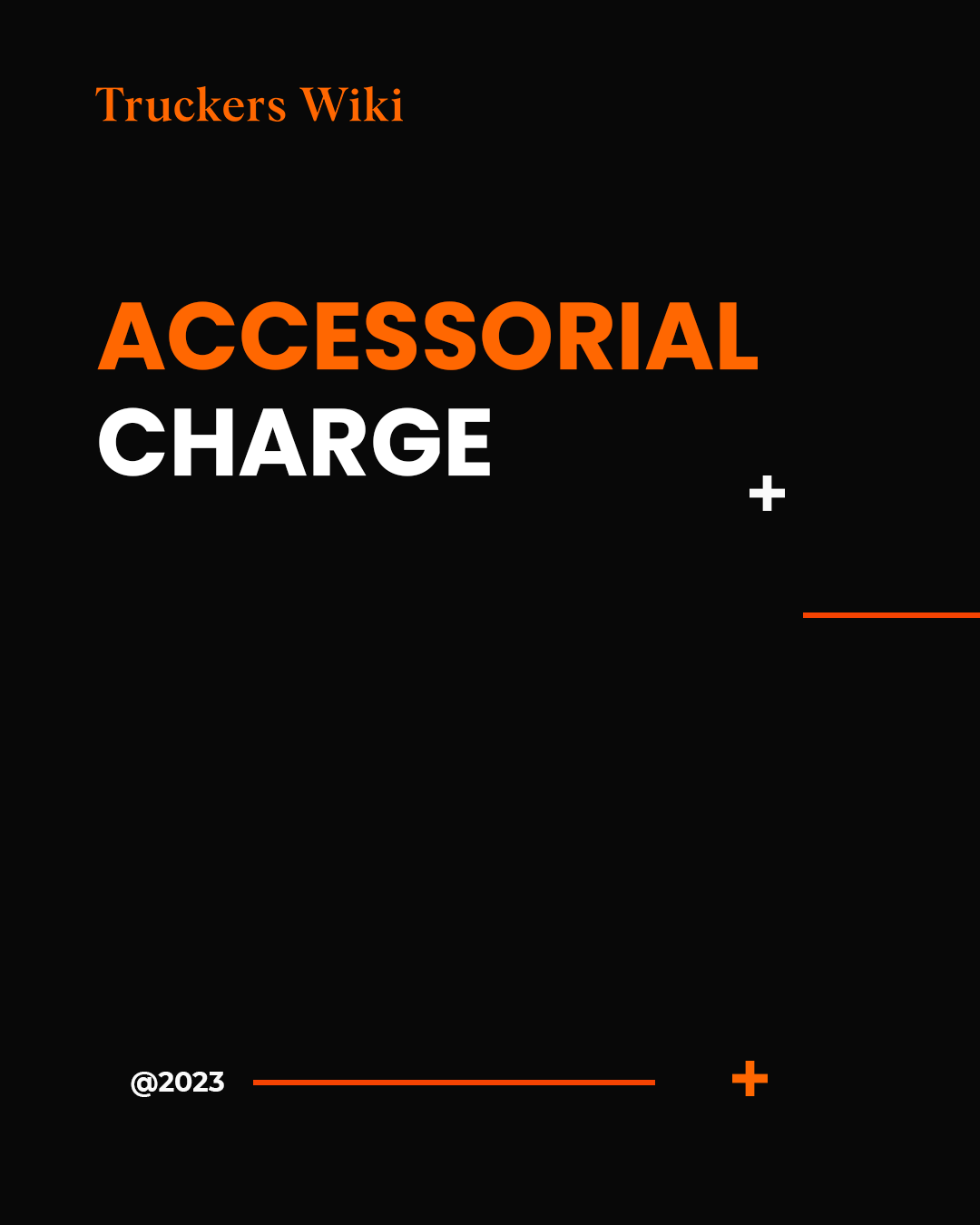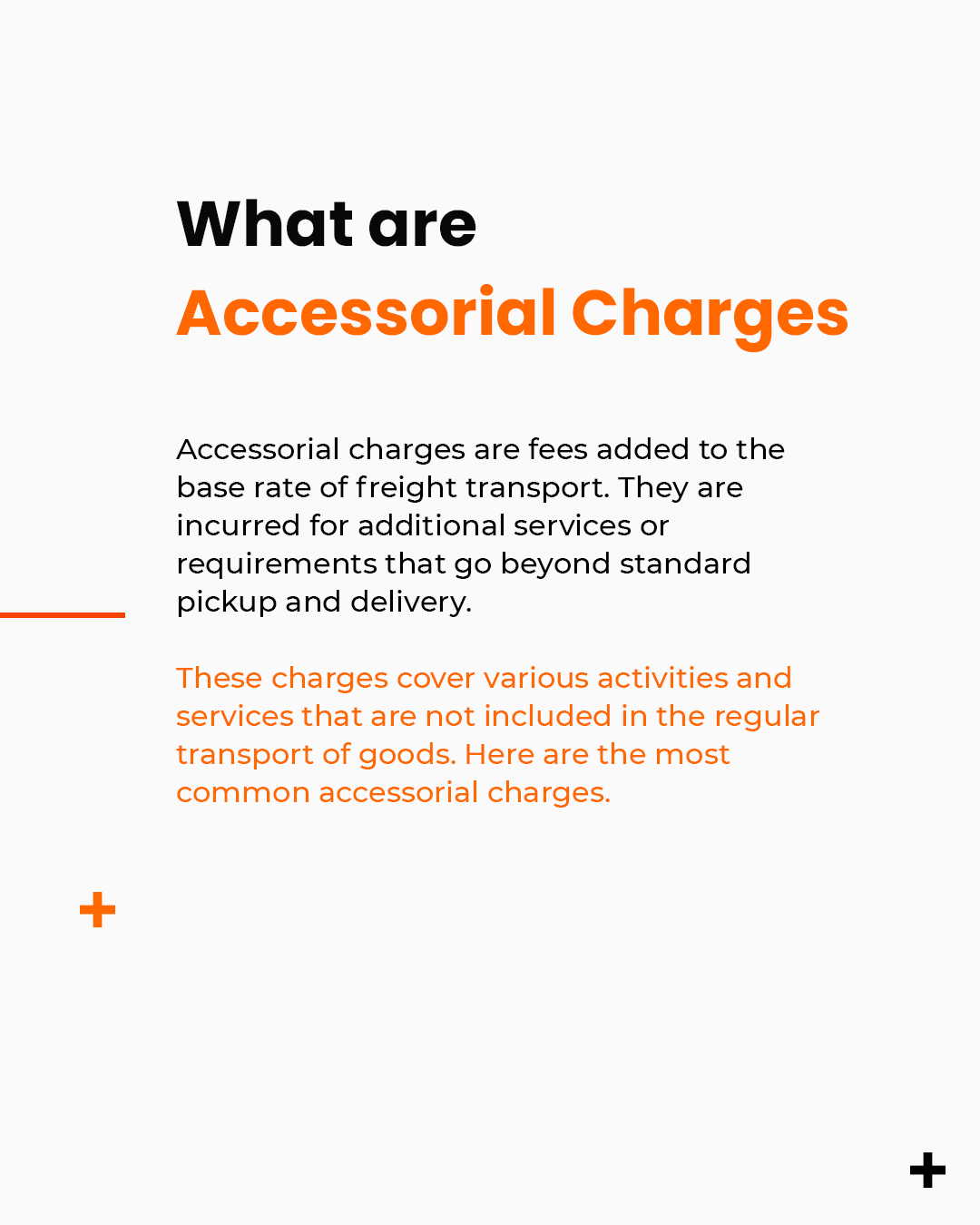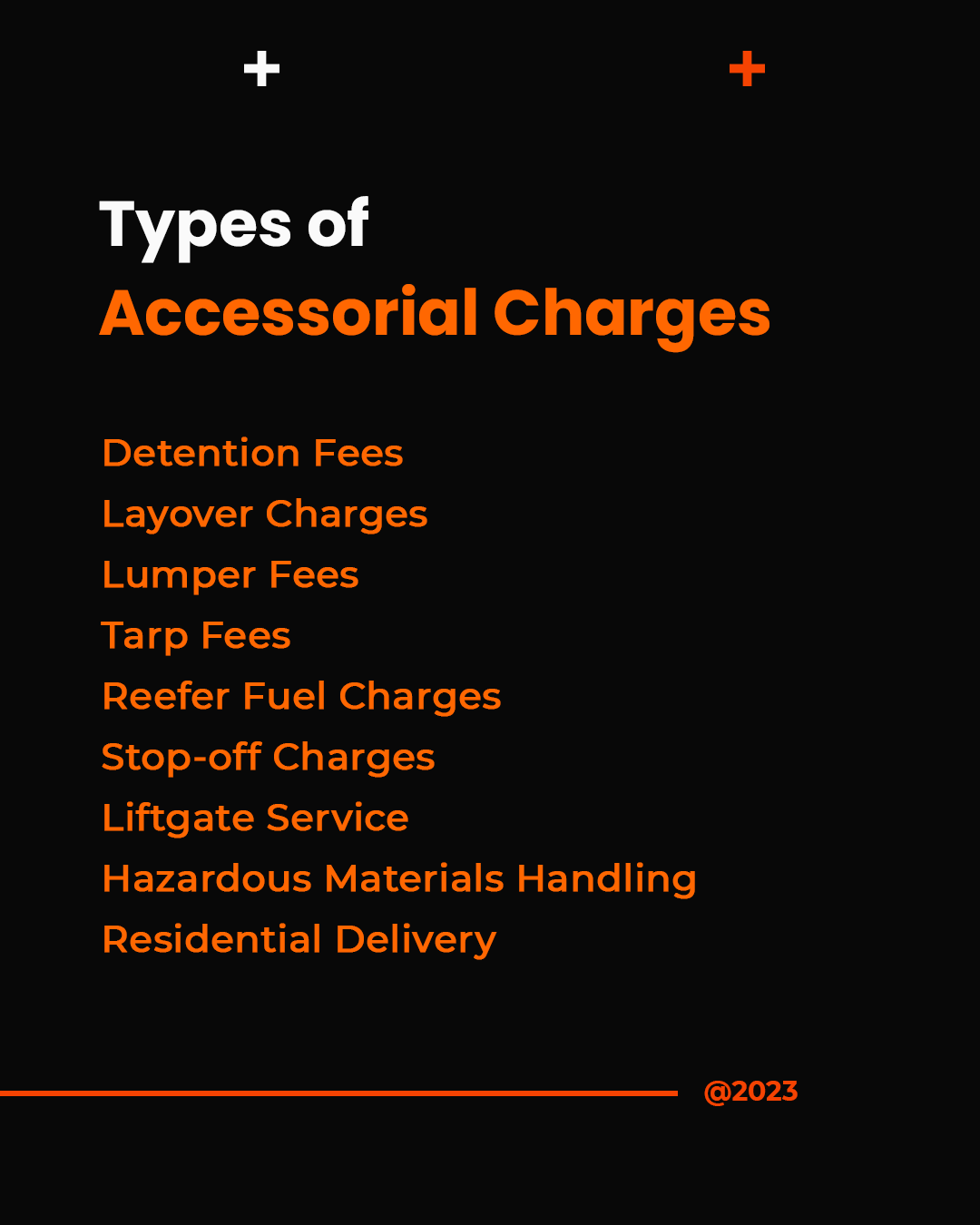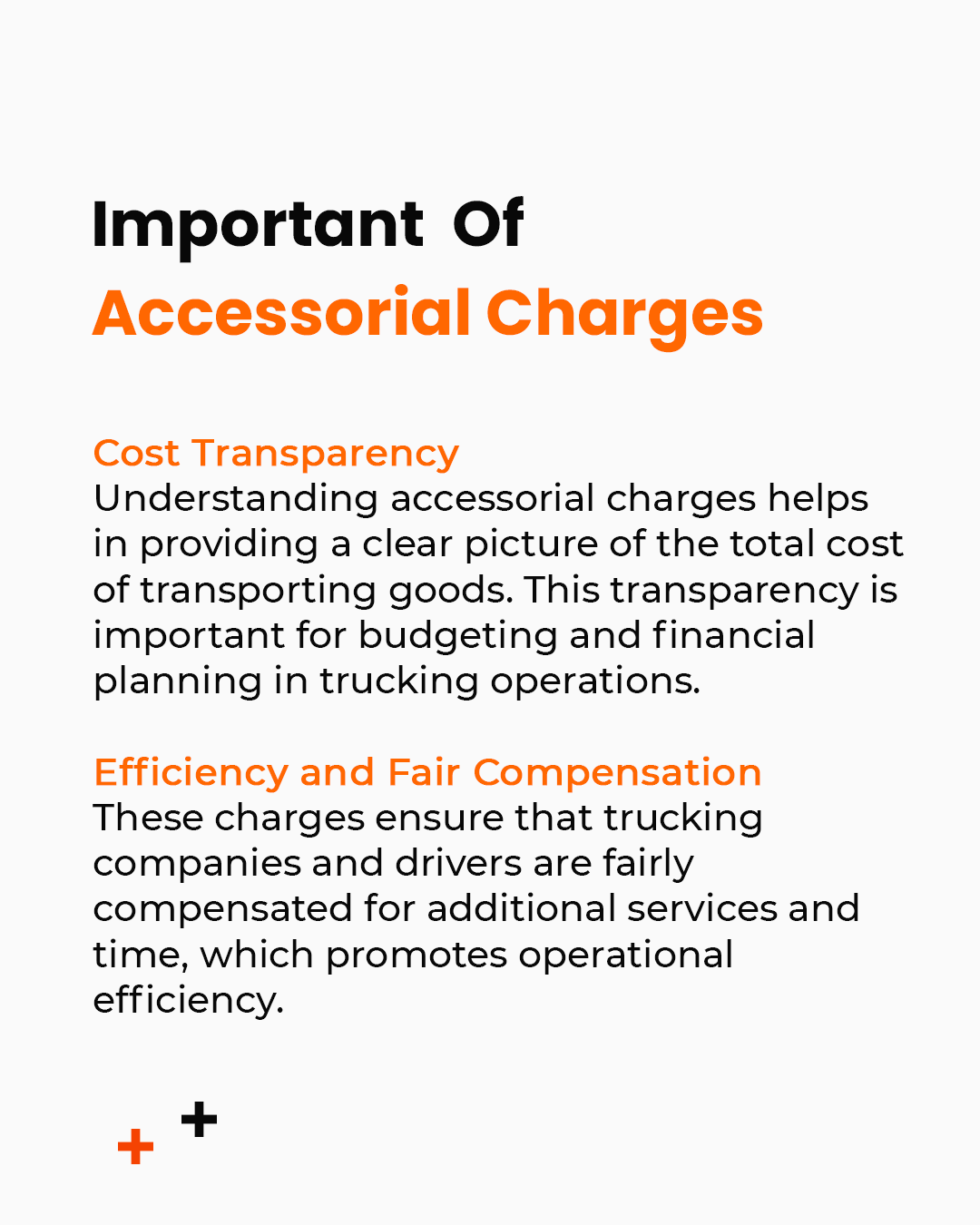
Table of Contents
What are Accessorial Charges (Additional Charges)
Accessorial or additional charges are fees added to the base rate of freight transport. They are incurred for additional services or requirements that go beyond standard pickup and delivery. These charges cover various activities and services that are not included in the regular transport of goods. Here are the most common accessorial charges.
Types of Accessorial Charges
Detention Fees: When a truck is detained beyond a predetermined time at the pickup or delivery point, detention fees are applied. This compensates for the time lost that the truck could have been used elsewhere.
Learn more about Detention here.
Layover Charges: If a driver must wait overnight or for an extended period before loading or unloading, layover charges are incurred.
Learn more about Layover here.
Lumper Fees: These are fees for hiring workers to load or unload the truck, often used at warehouses or distribution centers.
Learn more about the Lumper Fee here.
Tarp Fees: In flatbed trucking, a tarp fee is charged for covering the load with a tarpaulin for protection against the elements.
Reefer Fuel Charges: For refrigerated loads, this fee covers the cost of fuel used to keep the goods at the required temperature.
Stop-off Charges: When a truck has to make additional stops between the origin and destination, stop-off charges are applied.
Liftgate Service: This charge applies when a shipment requires the use of a hydraulic liftgate on the truck to load or unload cargo at locations without a dock or for heavy items that cannot be manually handled.
Learn more about Liftgate here.
Hazardous Materials Handling: Transportation of hazardous materials involves additional safety measures and compliance with regulations. Carriers may charge extra for handling and transporting such goods.
Learn about the 9 Classes of Hazardous Materials here.
Residential Delivery: Delivering goods to residential areas often incurs additional costs due to limited access, narrow streets, and specific delivery requirements. Carriers may apply a residential delivery charge to account for these factors.
Why are Accessorial Charges Important?
Cost Transparency: Understanding accessorial charges helps in providing a clear picture of the total cost of transporting goods. This transparency is vital for budgeting and financial planning in trucking operations.
Efficiency and Fair Compensation: These charges ensure that trucking companies and drivers are fairly compensated for additional services and time, which promotes operational efficiency.
Better Planning and Operations: Knowledge of these charges allows for better planning of routes, schedules, and manpower, leading to more efficient operations.
Client Relations: Clear communication regarding accessorial charges helps in maintaining good relationships with clients by setting the right expectations.
Knowing About Accessorial Charges is Important
Drivers
Drivers need to be aware of these charges to understand their earnings and ensure they are compensated for extra work.
Dispatchers
They play a key role in negotiating and managing these charges, as well as coordinating logistics to minimize unnecessary accessorial costs.
Recruiters
Recruiters should be knowledgeable about these charges to accurately inform potential hires about their earning potential and job responsibilities.
Freight Brokers and Logistics Coordinators
Understanding these charges is crucial for accurately quoting prices and managing logistics operations efficiently.
External Links
The Four Types of Accessorial Charges – Article by Universal Traffic Service – click here.
Listen to The Article Here
Fact Cards






